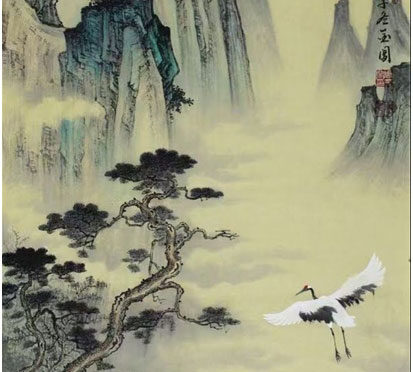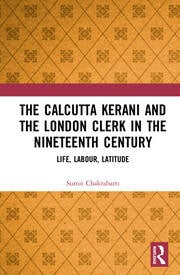Confucius and Han Fei: The Two Wings of China’s Governing Policy
Posted on : June 16, 2023Author : Nayantara Sengupta

Given the emphasis that China places on its Confucian legacy and attempts to disseminate Confucian philosophy globally, one would assume that in China, the leadership reads and follows the same. However, that may not essentially be the case. While consolidating his power in 2014, Chinese President Xi Jingping quoted not Confucius but a philosopher of the Legalist school Han Fei several times. The utilization of the Legalist philosophical tradition has served as a means to rationalize the establishment of a more pronounced hierarchical control within the Chinese Communist Party. According to Xi’s prominent quote from Han Fei, “no nation remains consistently powerful or weak”. The strength or weakness of a country is contingent upon the strength or weakness of those who enforce the principles of The Law (ding fǎ). (Brar, 2022) Xi Jinping’s utilization of Han Fei’s teachings can be observed in his emphasis on centralization of power and the strengthening of the Chinese Communist Party’s control over various aspects of society. Xi has implemented policies aimed at consolidating power, such as anti-corruption campaigns and internal party discipline measures, to maintain discipline and obedience within the party ranks. However, the strict control and concentration of power have raised concerns about the potential infringement on individual freedoms and civil liberties. Critics argue that Xi’s governance style has limited political dissent, suppressed freedom of speech, and curtailed the autonomy of civil society organizations.
This debate on the way a society should be ideally governed interestingly has its roots in the debates on the ideal form of governance among the schools of Chinese philosophy during what is known as the Warring States Period (475-221 B.C.E.). A close reading of two of the most prominent among them, Confucius and Han Fei show the very different styles of governance favoured by them. In fact, this is now reflected in the stance that the Chinese leadership assumes on numerous domestic issues. The Warring States period saw several small kingdoms, feuding for larger land holdings and political influence and ended with the victory of the state of Qin, which formed the first consolidated Chinese empire in 221 B.C.E. The need for consolidation and stability in this period of constant disputes led to the development of various schools of philosophical and political thought, with the key contributors being the Confucian school of thought, the Daoist school of thought, and the Legalist school of thought. Each of these three belief systems followed the concept of the Way or ‘Dao’, which means that if the individual follows the natural structure of things, everything will fall into place. These schools believed in the establishment of order, and sought to establish the same in their own distinguished ways. While each thought was unique, there was some amount of resonance between the schools, with each school critiquing the other, but also deriving some of their characteristics from their forerunners.
The chain of Chinese philosophical thought first dates back to Confucius, or as his disciples called him, Kong zi (Master Kong). Belonging to the Spring and Autumn period, Confucius was born in Zou, a domain in the modern Shandong province, which was a part of the larger state of Lu. Confucius sought to bring back the ‘Golden Age of the Zhou’, a time of prosperity and order, and lead the state and people back to Dao or the ‘Way of Heaven. He wished to do so using the traditional Zhou rituals and written classics, which had been preserved by a group of ‘Erudites’ or ru (cultural specialists). Confucius believed in, and placed emphasis on the concepts of junzi (gentleman) and ren (humaneness or goodness). This is evident through the Analects, where he has cited these terms multiple times, teaching his disciples the importance of attaining ren in order to become the proper junzi. He also believed that family was the basis of a good society, and that filial piety and reverence toward one’s parents served as an appropriate basis for becoming a gentleman or junzi. Confucius believed in ruling with Virtue and setting an example for one’s subjects, instead of ruling with harsh punishments. This is justifiable, since human nature tends to dissent against harsh treatment, here, punishment. He argues in Analects 2.3
The Master said, “If you try to lead the common people with governmental regulations and keep them in line with punishments, the laws will simply be evaded and the people will have no sense of shame. If, however, you guide them with Virtue, and keep them in line by means of ritual, the people will have a sense of shame and will moreover reform themselves.” (Ivanhoe and Van Norden, Readings, 5.)
Han Fei, regarded as the most influential philosopher belonging to the Legalist school of thought, defined his philosophy through a political strategy, giving importance to the authority of the ruler, administration, and governing laws of the state. He rejected both the Confucian and Mohist claims of the perfect ruler being one who has values and morals. He believed that with each passing era came new permutations and combinations of intra-state issues, as well as external complications, and believed that the only way to solve these issues would be to come up with solutions in context of the prevalent socio-economic and political conditions. Fei’s greatest achievement may be his theory of persuasion, which states that effective persuasion depends on one’s knowledge of the person who is being persuaded, and also the quality of one’s argument or persuasion.
During his lifetime, the state of Han was beset by internal strife and anarchy. The state of Qin posed a threat to Han due to its expansionist policy. Perhaps this why Han Fei has such a pragmatic view of politics and the state, which in turn may justify his stance on minister-ruler dynamics.
Cover your tracks, conceal your starting points, and your subordinates will not be able to see where you are coming from. Get rid of wisdom, dispense with ability, and your subordinates will not be able to guess your intentions. Hold on to what people have said before, and look to see if they match it with results. Carefully take hold of the handles of punishment and reward and maintain firm control of them. Cut off all hope of using them, smash all intentions to take them, and do not allow people to covet them.” (Ivanhoe and Van Norden, Readings, 299)
The ruler borrows from the abilities and wisdom of the ministers, and takes credit when they are successful, and blames them during failures. This way, he is wise, talented and of repute, and earns the loyalty of his subjects and the stability and prosperity of his state. He rewards those who have fulfilled their achievements, regardless of whether they are close to him or not, and punishes those who have failed or betrayed him, even if they are close. A ruler of men is someone who uses punishments to keep his ministers in check. He makes his laws inviolable and steadfast. If the ruler reveals what he dislikes, the assembled ministers will conceal the origins of their actions. Similarly, if the ruler reveals what he likes, the assembled ministers will feign abilities they do not possess. Thus, he keeps his inner desires to himself. He carefully observes his ministers and officials, without giving them any openings to appease him in order to gain favour for their own personal benefit.
Since both Confucius and Han Fei were responding to a historic situation where there was conflict and chaos, the central question was how to create stability and order in society, and both agreed that the first requirement was to bring order to the state. Coming to the debate between the two philosophers, a similarity one can note is the emphasis on respect for one’s elders or superiors. Confucius believed in filial piety and reverence for one’s parents and superiors. Han Fei believed in the superiority of the ruler with regard to his ministers and subjects, and utmost reverence and loyalty to him. Respect and reverence for one’s superiors was laid down as a way of ensuring stability and order of the state. Where they differed, is whether this could be brought through moral rectification, as upheld by Confucius or the institution of law, penalties and state coercion as described by Han Fei. Defined as idealistic, this was the core of Han Fei’s criticism of Confucius. As Han Fei argues
When a sage governs a state, he does not wait for the people to be good in deference to him. Instead, he creates a situation in which people find it impossible to do wrong. (Hutton, 428).
For Confucius, a sagely ruler would be enough to inspire his people to be good and that would bring back order to society. Han Fei, on the other hand, argues that it is idealistic to expect people to be virtuous in deference to the sagely ruler, and that this would in fact only encourage a very small number of people to be good. In any case there is no given way to create the virtuous man or truly determine who is virtuous and who is only pretending. However, if a situation was created by the ruler where the people would find it difficult to do wrong, then the same end could be achieved for the entire state. Therefore, when questions of governing emerge as crucial, recourse must be taken to methods that work for the entire state rather than a few, and it is here that one should depend on laws rather than just virtue. For Confucius, on the other hand, any attempts at coercive regulation, or law and punishments as Han Fei would argue, would be counterproductive, as Confucius writes in Analects 2.3, “Order was essential for society. However, it was important for that order to emerge from the fact that the people themselves were restrained and good. The way to achieving this social good was also through being good oneself thereby turning others to goodness.”
For Han Fei, this was not an achievable objective. While he does not argue against the necessity of people being moral as long as this does not create disobedience, he does not think that this morality is enough for good governance, where he argues obedience to laws is more important. This realistic stance is countered by Confucians who argue that historically such ‘golden periods’ did exist, and that the very idea of such an ideal society may become a persuasive reason for an attempt to realize it. Maybe, Confucius himself realized that this was an ideal and not achievable in practice. Here, we cite Analects 14.38:
Zilu spent the night at Stone Gate. The morning gatekeeper asked him, “Where have you come from?”
Zilu answered, “From the Kong clan.”
“Isn’t he the one who knows that what he does is impossible and yet persists anyway?” (Ivanhoe and Van Norden, Readings, 39)
Moreover, Confucius himself struggled to find the perfect junzi, or the perfect practitioner of ren, as we note in Analects 4.6, Confucius says “I have yet to meet a person who truly loved ren or hated a lack of ren.” “Is there a person who can, for the space of a single day, simply devote his efforts to ren? I have never seen one whose strength is insufficient for this task. Perhaps such a person exists, but I have yet to meet him.” (Ivanhoe and Van Norden, Readings, 10.)
Confucius believed the role of state in the lives of its citizens should be limited. Analects 12.7 says that the requisites of government are that there be sufficiency of food, sufficiency of military equipment and confidence of the people in their ruler. The role of the state in the lives of individuals would be restricted to protecting them and allowing them to follow their own interests based on rationality. He was also against state intervention in other aspects of society like the economy. Legalists like Han Fei, on the other hand argued against the accumulation of individual wealth which would be detrimental to maintaining order in the state. According to Han Fei,
“The method of governing used by an enlightened ruler to bring order to his state is to keep the number of merchants, craftsman, and wandering tradesmen low and their status humble. In this way he promotes the primary occupations, and discourages the auxillary ones.” (Ivanhoe and Van Norden, Readings, 334) The belief that only the state could bring order and stability meant that anything that threatened this, including accumulation of wealth by an individual, was viewed negatively. Han Fei’s bureaucratic state would be based on a code of law and administered by those who had politically relevant merit, which is task specific, and slotting them appropriate positions.
While the Confucian belief that morality and goodness can establish a good society automatically would not apply in reality, as every stable state still requires some law and order, as not every person can be morally virtuous, Han Fei’s emphasis on meting out punishments for even the slightest of mistakes, as a way of ensuring law and order would lead to the state being autocratic and leading to revolutions. The Covid-19 pandemic brought to the forefront the significance of Xi’s utilization of Han Fei’s teachings. China’s response to the outbreak reflected the legalist principles of centralization and strict control. The government imposed strict lockdown measures, implemented mass testing and contact tracing, and enforced quarantine protocols to contain the spread of the virus. These measures, driven by a top-down approach, allowed China to swiftly curb the initial wave of the pandemic within its borders. However, the centralized decision-making and limited transparency in the early stages of the outbreak drew criticism both domestically and internationally. Some argue that the control-oriented approach hindered the flow of information, impeded early detection, and potentially delayed the global response to the pandemic.
Readings
Annping Chin, “Confucius,” Encyclopædia Britannica, Inc., https://www.britannica.com/biography/Confucius
Encyclopædia Britannica. “Warring States.” Encyclopædia Britannica, Inc. https://www.britannica.com/event/Warring-States.
Brar, Aadil. “Not Sun Tzu or Confucius, Xi Jinping & Elite Chinese Politicians Are Reading This Philosopher.” The Print, May 25, 2022. https://theprint.in/opinion/eye-on-china/not-sun-tzu-or-confucius-xi-jinping-elite-chinese-politicians-are-reading-this-philosopher/969152/.
Hutton, Eric L. “Han Feizi’s Criticism of Confucianism and its Implications for Virtue Ethics.” Journal of Moral Philosophy 5 (2008).
Ivanhoe, P. J., and Bryan W. Van Norden, eds. Readings in Classical Chinese Philosophy. London, New York: Seven Bridges Press, 2001.
Schneider, Henrique. “How to Establish Social Order? Three Early Chinese Answers.” 1000 Word Philosophy (July 9, 2018). https://1000wordphilosophy.com/2018/07/09/how-to-establish-social-order/.
Nayantara Sengupta
Intern, Asia in Global Affairs
The originality of the content and the opinions expressed within the content are solely the author’s and do not reflect the opinions and beliefs of the website.





Leave a Reply